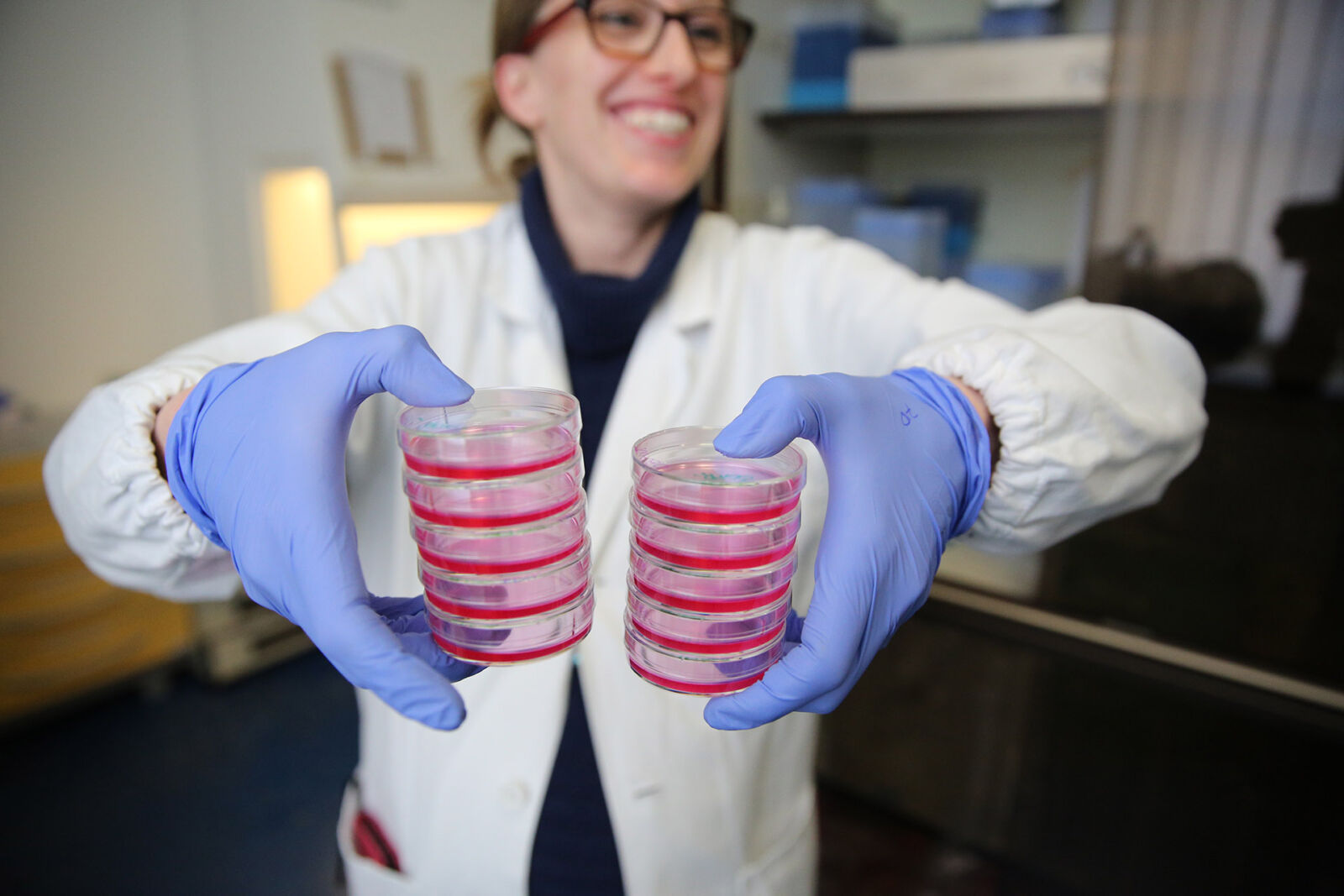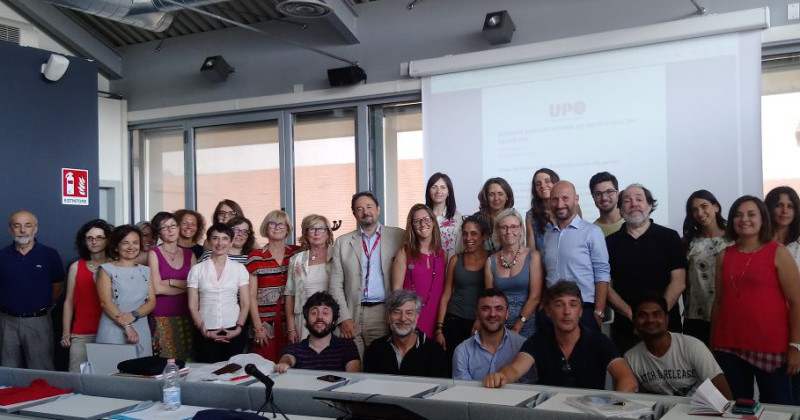Vision and mission
The AGING Project of the Department of Translational Medicine (DIMET) at Università del Piemonte Orientale (UPO) is a benchmark for research and training on aging.
With its research and main offices located in Novara, the AGING Project strives to make both a local and global impact on aging-related issues by closely collaborating with national and international stakeholders and research centers and by fostering community outreach programs. Thanks to this participatory and highly collaborative effort, summarized below in 4 major points, the AGING project aspires to meet the many challenges posed by longevity.

The challenges of healthy aging and increased longevity
From 1950 to 2012, we have witnessed a four-fold increase in the number of people aged 60 or over, whose number has grown from 205 to 810 million in 2012, projected to reach up to 1 billion by 2020 and expected to double by 2050. In higher-income countries, the growth of the elderly population has been accompanied by an increase in chronic degenerative non-communicable diseases, which represent the largest part of the global burden of disease.
While the increase in longevity can be regarded as an important milestone for humanity, it may become a long-term threat unless it is mitigated by specific policies and interventions aimed to improve elderly care and well-being. We therefore believe that the profound social and health implications of an exceptional demographic and epidemiological transition, such as the one we are experiencing, will require:
- Implementing an unprecedented research effort;
- Developing and testing innovative intervention and prevention models;
- Breathing new life into the alliance between professions.
Our greatest challenge is to foster an interdisciplinary approach in education as this transition is expected to profoundly impact the training needs of healthcare professionals worldwide.
How to meet these challenges
The following are some of the fundamental questions on aging we wish to answer through our research activities:
- Why do we age? And why do we do so in such poor health conditions?
- Why do certain diseases only affect the elderly?
- Can we reduce the burden of disease and disability during aging?
- How can we improve treatment and care of aging people?
By providing cutting-edge healthy aging training to healthcare professionals with managerial and organizational roles, we aim to foster the adoption of innovative solutions to meet the ever-growing needs of an aging population. We also seek to train future researchers in interdisciplinary and innovative research programs on emerging aging-related issues in areas encompassing basic, clinical and organizational research as well as public health.
Through Public Engagement we aim to share knowledge and best practices on healthy aging with local communities through communication activities, publications and events.
Thanks to the “Novara Cohort Study”, we aim to investigate the aging process among the local population of the Novara Province (Italy), identifying different healthy lifestyles and risk factors. Lastly, by donating biological samples to a biobank, all citizens can become not only beneficiaries but also an integral part of the research and discovery process on aging.
The four pillars of the AGING Project:
Interdisciplinary approach
Translational research
Support for research and education
Public engagement
While other research centers focus on only one aspect of aging, or on specific age-related mechanisms or pathologies, thanks to our interdisciplinary nature, we at AGING Project work towards understanding aging in its complexity.
The ultimate goal of the AGING Project is that of translating the interdisciplinary research not just into the daily clinical practice but also into the organizational structure of the public healthcare system through the creation of new models for elderly care, health promotion and lifestyle medicine.
Another important objective of our AGING Project is that of supporting research and postgraduated education activities. To this end, we have created an ad hoc Ph.D. Program in Food, Health and Longevity, divided into two curricula. Furthermore, we offer new advanced training and refresher courses for health professionals.
As our activities are closely interwined with the local context, we aim to interact effectively with the Province of Novara, by implementing a two-pronged approach based on: i) broad dissemination of our findings for the benefit of the community; and ii) direct involvement of the local community in research activities (i.e. community-based participatory research).
Interdisciplinary approach
While other research centers focus on only one aspect of aging, or on specific age-related mechanisms or pathologies, thanks to our interdisciplinary nature, we at AGING Project work towards understanding aging in its complexity.
Translational research
The ultimate goal of the AGING Project is that of translating the interdisciplinary research not just into the daily clinical practice but also into the organizational structure of the public healthcare system through the creation of new models for elderly care, health promotion and lifestyle medicine.
Support for research and education
Another important objective of our AGING Project is that of supporting research and postgraduated education activities. To this end, we have created an ad hoc Ph.D. Program in Food, Health and Longevity, divided into two curricula. Furthermore, we offer new advanced training and refresher courses for health professionals.
Public engagement
As our activities are closely interwined with the local context, we aim to interact effectively with the Province of Novara, by implementing a two-pronged approach based on: i) broad dissemination of our findings for the benefit of the community; and ii) direct involvement of the local community in research activities (i.e. community-based participatory research).
The history of the AGING Project
Founded in 2015 by a group of faculty members and researchers from Università del Piemonte Orientale (UPO) and Istituto per Ricerche Economiche e Sociali (IRES) of Piedmont, collaborating on various research activities, the Healthy AGING Group consists of multidisciplinary team encompassing various disciplines, such as anthropology/ethnology, biology, biochemistry, economics, endocrinology, epidemiology, physiology, physiotherapy, geriatrics, hygiene, nursing, internal medicine, nutrition, psychiatry, sociology, and medical statistics.
Characterized by a collaborative and participatory approach, the Healthy AGING Group is strongly committed to community outreach working elbow-to-elbow with local stakeholders and actively participating in community-based events in the Province of Novara.
The path undertaken by the Healthy AGING Group bore its fruit in 2018 when the Italian Ministero dell’Istruzione, Università e Ricerca (MIUR) conferred the Excellence Award to the Departments of Translational Medicine (DIMET) and the Health Sciences (DSS) of the UPO School of Medicine. This support allowed the DIMET to launch the AGING Project, while the DSS set in motion the “Food for Health: an integrated Approach (FOHN)” project.
The AGING Project Excellence Award consists of a five-year grant that allowed strengthening ongoing research and educational activities in the aging field as well as increasing the number of national and international collaborations with on aging-related projects.
One of such examples is the collaboration between the DIMET and DSS which have undertaken several joint projects on healthy aging and nutrition, such as the International and Interdisciplinary Ph.D. program in Food, Health and Longevity.

Facilities
The AGING Project has access to a large number of University facilities, including:
- Fund Raising Support Unit;
- Research Support Unit;
- The Center for Translational Research on Autoimmune and Allergic Diseases (CAAD);
- Interdepartmental Centre for Innovative Didactics and Simulation in Medicine and Health Professions (SIMNOVA);
- The Biobank (Biobanca).
